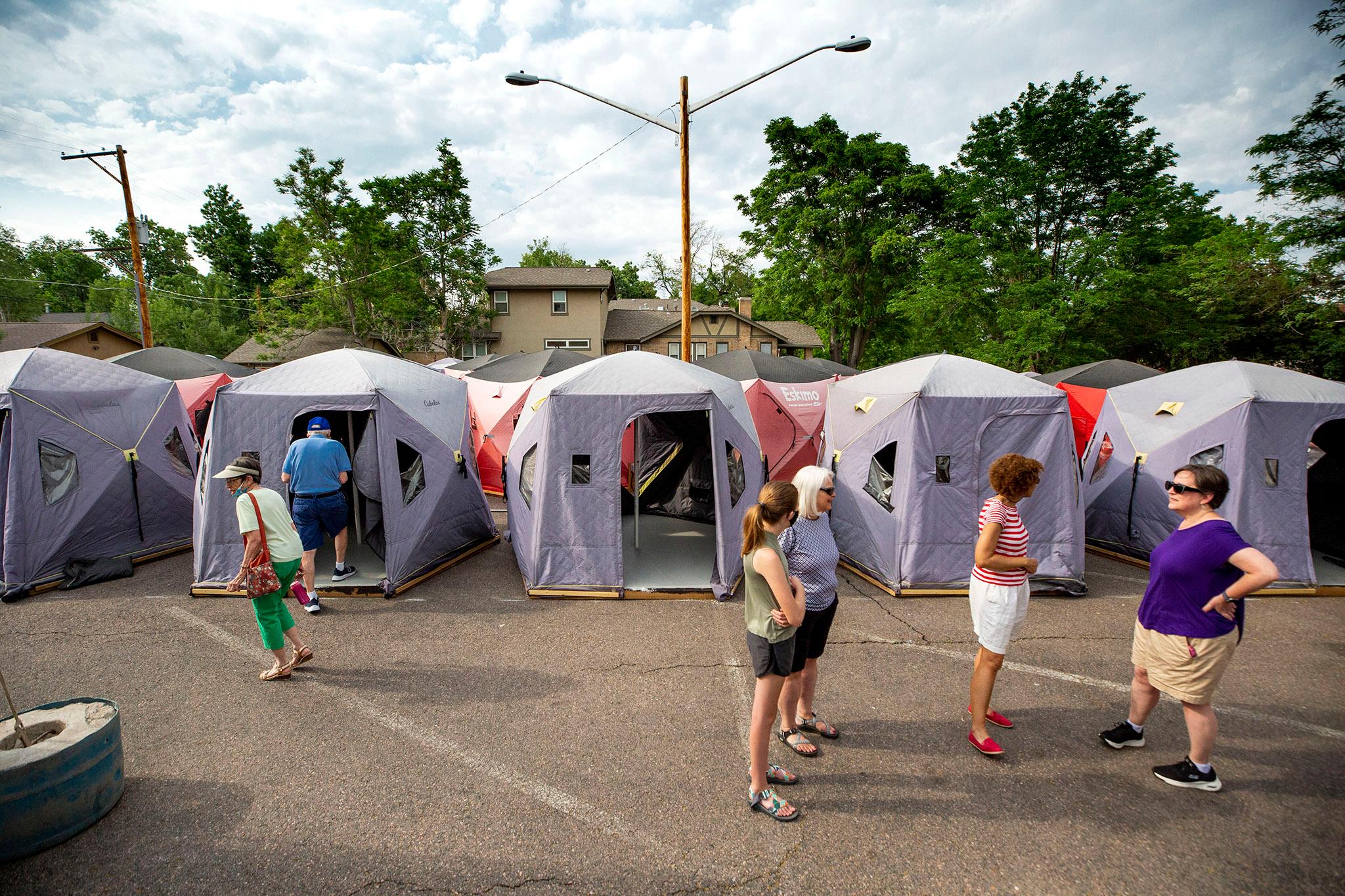City Council voted Monday to contribute $2 million to the Denver Basic Income Project, an organization giving people experiencing homelessness $12,000 over the course of one year. The city's contribution will specifically go to 140 women, transgender and gender-nonconforming individuals and families - a group that has seen rising levels of homelessness during the pandemic.
Founded by Denver resident Mark Donovan, who provided the initial funding, Denver Basic Income Project is partnering with the University of Denver's Center for Housing and Homelessness research. It's part of a larger approach to homelessness that gives cash to people directly, who can then spend the money on whatever they need - no strings attached. Similar projects are in the works across the country, in Los Angeles, Oakland, Chicago and more.
"Cash is increasingly being seen as the benchmark against which all forms of aid and assistance should be compared," Donovan said in a council committee meeting in August. "We're building this on a principle of trust... to honor the agency of individuals to know what's needed in their life."
In total, 520 households will each get $12,000 over the course of a year, with additional funding coming from private donors and foundations. While the city's contract is specifically for 140 women and transgender and gender-nonconforming people, the project as a whole is open to people 18 or older, connected with a partner organization and do not have "severe unaddressed mental health or substance abuse issues," according to the Denver Basic Income Project's website.
Why specifically women, transgender and gender-nonconforming folks?
City Council is funding its contribution with American Rescue Plan Act (ARPA) funds, given by the federal government as a form of pandemic relief. This means the decision to fund the Denver Basic Income Project must be tied to economic recovery related to the coronavirus.
"While treasury guidance indicates that anyone experiencing housing instability is presumed to be impacted economically by the COVID-19 pandemic, we have also seen particular increases in the number of women using our shelter system," said Jennifer Biess, Director of Data, Policy and Strategy for the Department of Housing Stability.
According to Biess, the number of women using Denver's homeless shelter system tripled throughout the pandemic. She did not provide data on transgender and gender-nonconforming people using the city's homeless resources, but studies show LGBTQ people are at a higher risk of homelessness in the U.S.
How does the program work?
One group of participants will receive $6,500 up front and $500 per month going forward, while a second group will get $1,000 per month. A third control group will receive $50 per month. The program will launch this November with 820 households, and run through 2023.
Who ends up in which group will be randomized, while still taking into account demographic disparities in homelessness among communities of color, Donovan said.
People experiencing homelessness will be connected with the program and receive assistance in applying through neighborhood partners, such as the Colorado Coalition for the Homeless, Colorado Village Collaborative, the Delores Project and Urban Peak. Researchers from the University of Denver's Center for Housing and Homelessness will study the program's impact.
Councilwoman Amanda Sawyer expressed support for Denver Basic Income, but said she worries about the effect of inflation on the initial rate of $12,000, and what will happen to people receiving assistance once the 12 months end.
"I think this is a great opportunity for our residents, and I don't want to use them as test subjects and leave them high and dry," she said in a Safety, Housing, Education and Homelessness Committee meeting at the end of August. "This could be a really extraordinary change for our community."
Councilwoman Candi CdeBaca said she worries about the payments pushing people over qualification limits for other benefits like SNAP and social security.
Maria Sierra, community liaison with the Denver Basic Income Project, acknowledged this as a challenge. She said the organization has negotiated exemptions in some cases, but are still working on SNAP benefits. Social Security benefits are managed on a case by case basis.
"It's about providing information so people themselves can make informed decisions," Sierra said in the committee meeting.
Research on similar programs in other cities have shown basic income payments to help people find stable housing, increase employment and spending on things like food, transportation and utilities and decrease spending on alcohol and drugs. While researchers will track spending in the Denver program, participants can spend the money at their discretion.
In addition to Monday's approval by City Council, the program has the support of Mayor Michael Hancock, who said in a statement in August that he saw it as a welcome opportunity for the city. The Denver Basic Income Project will be in preparation mode until October and kick off in November.













